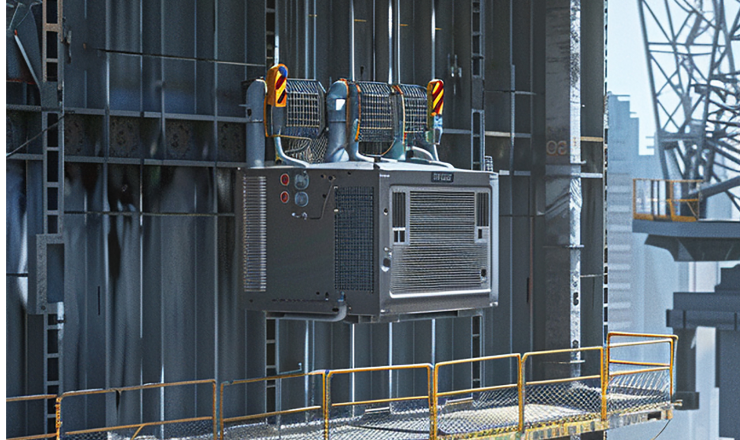- Home
- About Us
- Blog
- Services
- Equipment
- Online Testing
- Offline Testing
- Partial-Discharge
- CPC 100 Multifuncational Switchyard
- Vlf Tan Delta Measurement
- Current Signature Analysis
- Relay Measurement
- CT Measurement
- SFRA Measurement
- Moisture Analysis by PDS & PDC
- Turns-Ratio-Measurement
- Winding Resistance Measurement
- OLTC-DCRM-Measurements
- Frequency Response stray Losses
- Circuit Breaker Analyzer & DCRM Test
- Circuit Breaker Timer
- Contact Resistance Meters
- Particle Count Tester-Pamas
- TRAX Multifunctional switchyard Diagnostic Test
- TESTRANO-600
- Surge Tester-jabbals
- Circuit Breaker Analyzer
- Gallery
- Careers
- Contact Us
RLA & RLE Testing for Power Systems

“Today the concept has changed and efforts are being directed to explore new approaches/techniques of monitoring.”
Residual Life Assessment And Residual Life Extension
Until recently, many technical systems have been designed, operated, and maintained empirically until recently. Today the trend is changing, and efforts are being directed to explore new methods or techniques of monitoring, diagnosis, life assessment and the possibility of extending the life of assets such as Power Transformers, Circuit breakers, Cables, Generators, Motors, etc. In many cases, the equipment in a thermal plant is made to operate beyond its operating range due to grid disturbance or the malfunctioning of controls, adversely affecting the life span of the equipment. Residual Life Assessment looks at various methods for test frequency and recommends necessary rectification actions that may be taken to determine the remaining life of the equipment.
What Is Residual Life Assessment & Residual Life Extension?
Residual life assessment (RLA) is a method that evaluates the type of degradation of equipment and determines its materials to ascertain the remaining life of the equipment.Residual Life extension (RLE) refers to identifying the scientific area describing the determination of technical health, prediction, and extension of the mean residual life for technical systems. The main objective of RLA and RLE includes studying areas related to determining the technical health of a critical technical system and predicting its mean residual life.
The Assessment Stages Of Residual Life Extension
RLA & condition assessment process is conducted in a three-stage explained below with the example of a Power Transformer:
Stage 1 – Online tests Operational, Design and Historical information
This stage reviews all engineering design and operational documents, past test data, and regular scans with Online test methods. New oil tests would be undertaken. This should identify the common problems and prioritise which offline tests are more critical in the second stage for detailed review activities, such as External inspection, IR/UHF surveys, oil tests for the main tank and LTC, including DGA and FURAN, and the checking of pump operation and fans.
Stage 2 – Conducting Offline tests on all units
Focusing on the risk identifications indicated in Stage 1, a range of outage tests are undertaken to investigate issues and correlate with the assessment from Stage 1.
This stage conducts Offline tests- PF/Cap, Winding and insulation resistance, SFRA, Turns Ratio, Leakage Reactance, Bushing, surge arrester testing, OLTC operation and dynamic contact resistance measurement, Moisture analysis of paper insulation by dielectric method (PDC+ FDS).
Stage 3 – Classification Of Transformer And Recommendation For Future Tests:
All units will be assessed regarding design groups with problems, overall conditions, and thermal, mechanical, and dielectric conditions. The unit Assessments will be conducted based on the following:
- Operational issues and design group history
- Oil condition of main tank & selectors
- Thermal ageing of transformer and hot spots in winding and connection
- Dielectric condition
- Mechanical condition
Conclusion
In general, such as Generator Transformers, Station Transformers, and Inter-connecting Transformers must be highly reliable to minimise operational and safety risks at the site. To ensure transformer reliability, assessing the extent of ageing and early identification of emerging faults is vital. Residual Life Assessment helps assess the remaining useful life of a transformer.
FAQs
1. What Is The Main Purpose Of Residual Life Assessment?
Residual life assessment determines the type of degradation of equipment and its materials to ascertain the remaining life of the equipment. It looks at various methods for test frequency and recommends necessary actions that are required to be taken to determine the remaining life of the equipment.
2. Why Is Residual Life Extension Important?
Residual Life Extension helps to extend the mean residual life of technical systems. The main objective includes determining the technical health of a degrading technical system and predicting its mean residual life. It is essential to conduct this study as it determines the working limit of a technical system or equipment, which is essential to ensure the equipment is not overworked.
3. What Happens When Neither Residual Life Assessment Nor Residual Life Extension Is Conducted On Equipment?
In most cases, equipment working is often evaluated based on observation rather than an ethical theory. This results in equipment being overworked or used much more than its capacity, deteriorating life. Not performing a Residual Life Assessment or Residual Life Extension test will not determine the technical health of a critical technical system or predict its mean residual life. It is essential to ensure transformers’ reliability and assess the extent of aging and early identification of emerging faults in a piece of equipment.Discover the Elf Bar and revolutionize your vaping experience with the elfbc5000. This innovative device caters to your needs, offering a smooth and satisfying vape with its impressive flavor range and long-lasting battery life. Enjoy the convenience of a compact design while indulging in the rich, vibrant flavors that make each puff enjoyable. Choose the Elf Bar BC5000 today and elevate your vaping journey to new heights!
